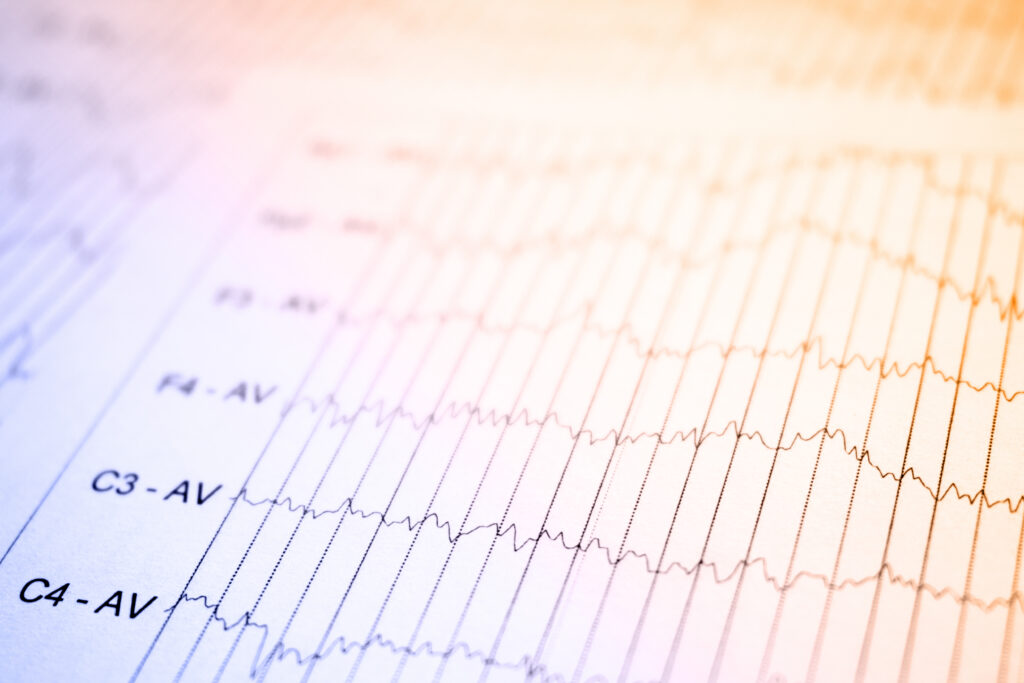In this Data Challenge, participants are tasked with developing machine learning models to accurately predict sleep states using Electroencephalography (EEG) data collected from IDUN Guardian Earbuds. This Data Challenge addresses the growing need for accessible, consumer-grade Brain Computer Interfaces (BCI) devices capable of providing reliable sleep monitoring and analysis.
Electroencephalography (EEG) is a powerful, non-invasive technique for recording brain electrical activity, offering high temporal resolution and real-time data crucial for both clinical and research applications. It plays a vital role in clinical settings for diagnosing and monitoring neurological disorders such as epilepsy, sleep disorders, and brain injuries. It’s also essential for assessing brain function in patients under anesthesia or in comas. The real-time nature of EEG data enables clinicians to make rapid, informed decisions about diagnosis and treatment.
In cognitive neuroscience research, EEG is instrumental in exploring various cognitive processes, including attention, perception, memory, and emotional responses to stimuli. This provides valuable insights into the neural mechanisms underlying human cognition and emotional processing.
Successful models from this competition could contribute to:
- Improved sleep disorder diagnosis and treatment monitoring
- Development of more accurate and user-friendly consumer sleep tracking devices
- Advancement of BCI technology for various applications beyond sleep analysis
- Enhanced understanding of neural correlates of different sleep stages
By bridging the gap between clinical-grade EEG analysis and consumer-friendly devices, this Data Challenge aims to democratize access to sophisticated brain monitoring tools and expand our understanding of sleep neurophysiology.
Dult file evaluated with this metric, participants had to share their code with a description of their approach, through a gitlab or github repository. These requirements aimed to promote reproducibility, transparency, and the sharing of innovative methodologies, fostering a collaborative and scientifically rigorous environment.
Results
The winning team, among nine active participating teams, has reached a F1 score of 0.55, combining approaches from signal processing with machine learning.
Calendar
- December 2, 2023: Development phase starts. feed-back are provided on the public leaderboard, displaying results on the validation set only.
- January 12, 2024: Final phase: Only one submission on final dataset.
- January 23, 2024: Competition Ends. Final results are released.
Links
- The Codabench web site of the competition, with the leaderboard of the development phase.
- github repository of the winning team
